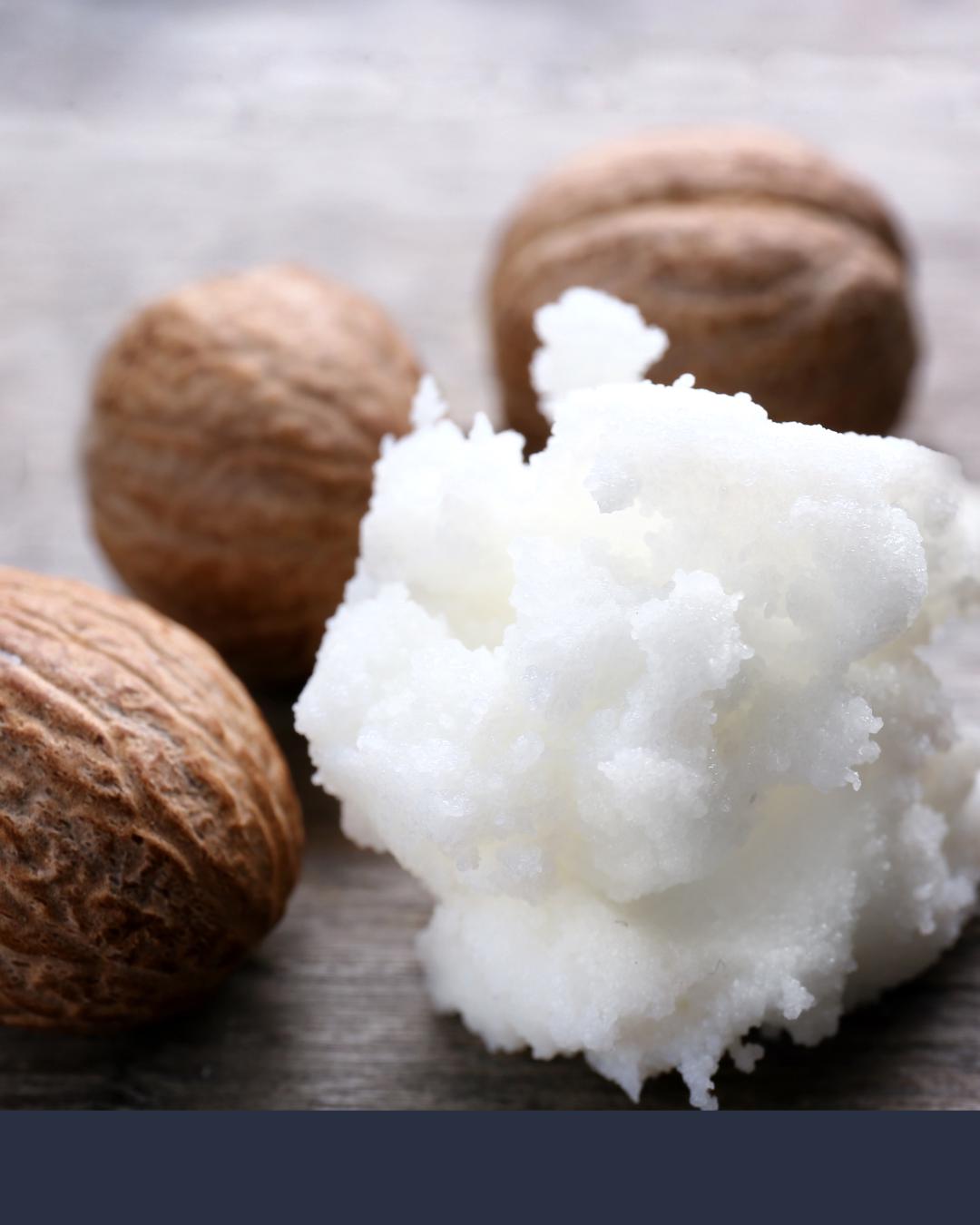This week I wanted to tell you about one of my favorite ingredients and why it is one of my favorites. Shea butter (INCI name is Butyrospermum Parkii Butter), a creamy, ivory-colored fat extracted from the nuts of the shea tree, has been a skincare staple in Africa for centuries. Revered for its rich moisturizing properties, it's now gaining global recognition not only for its benefits to our skin but also for its positive impact on the environment and the economies of developing nations.
A Balm for Your Skin: The Beauty Benefits of Shea Butter
Shea butter is a powerhouse of skin-loving nutrients, making it a fantastic addition to any skincare routine:
- Intense Moisturizer: Its high concentration of fatty acids, including oleic, stearic, linoleic, and palmitic acids, helps to create a barrier on the skin, locking in moisture and preventing dryness. This makes it ideal for soothing dry, chapped skin and conditions like eczema and psoriasis.
- Anti-Inflammatory Properties: Shea butter contains natural anti-inflammatory compounds that can help to reduce redness, swelling, and irritation caused by skin conditions or environmental stressors like sunburn.
- Antioxidant Rich: Packed with vitamins A and E, powerful antioxidants, shea butter helps to protect skin cells from damage caused by free radicals. This can contribute to a more youthful and healthy complexion.
- Supports Skin Healing: Its moisturizing and anti-inflammatory properties can aid in the healing of minor cuts, scrapes, and even scars by promoting cell regeneration.
- Non-Comedogenic: Despite its rich texture, shea butter is generally non-comedogenic, meaning it won't clog pores, making it suitable for most skin types, even oily skin in moderation.
- May Aid in Acne Prevention: By helping to balance the skin's natural oil production and providing moisture without clogging pores, shea butter may contribute to preventing breakouts.
Nurturing Our Planet: The Environmental Advantages of Shea Butter
Choosing shea butter can also be a more environmentally conscious decision just choose a reputable company who endorses sustainability and supporting local tribes who harvest the shea butter:
- Supports Biodiversity: Shea trees typically grow in mixed agroforestry systems alongside other crops, promoting biodiversity and preserving natural habitats for various plant and animal species, unlike monoculture farming.
- Carbon Sequestration: Shea trees are long-lived and absorb significant amounts of carbon dioxide from the atmosphere, acting as natural carbon sinks that help mitigate climate change. Sustainable management of these tree populations enhances this capacity.
- Prevents Soil Erosion: The presence of shea trees in the landscape helps to stabilize the soil and prevent erosion, contributing to healthier land.
- Sustainable Harvesting: Traditional hand-harvesting methods of shea nuts do not harm the trees or the surrounding ecosystem, ensuring the long-term health of shea forests.
- Reduced Chemical Impact: As a natural product, shea butter production avoids the use of harsh chemicals and synthetic fertilizers often associated with other cosmetic ingredient sources.
Empowering Communities: Shea Butter and Economic Growth
The shea butter industry plays a vital role in the economies of many developing nations, particularly in West Africa:
- Women's Economic Empowerment: The collection, processing, and marketing of shea butter are predominantly carried out by women in rural communities. This provides them with a crucial source of income, often referred to as "women's gold," leading to greater financial independence and improved social status.
- Poverty Reduction: The income generated from shea butter production helps families afford food, education for their children, and healthcare, directly contributing to poverty alleviation in regions where other economic opportunities may be limited.
- Stimulates Local Economies: The demand for shea butter, both domestically and internationally, creates a value chain involving collectors, processors, traders, and exporters, generating income and economic activity at various levels within local communities.
- Supports Sustainable Development: Fair trade practices within the shea butter industry ensure that women receive fair wages and work in safe conditions, promoting ethical and sustainable development within these communities.
- Preserves Cultural Heritage: The traditional methods of shea butter production are often deeply rooted in the cultural heritage of these communities, and supporting the industry helps to preserve these traditions.
In Conclusion:Shea butter is more than just a skin moisturizer; it's a natural resource with a remarkable trifecta of benefits. It nourishes and protects our skin, supports environmental sustainability through its growth and harvesting, and empowers women and fosters economic growth in developing economies. By choosing products made with ethically and sustainably sourced shea butter, we can indulge in self-care while contributing to a healthier planet and a more equitable world.

